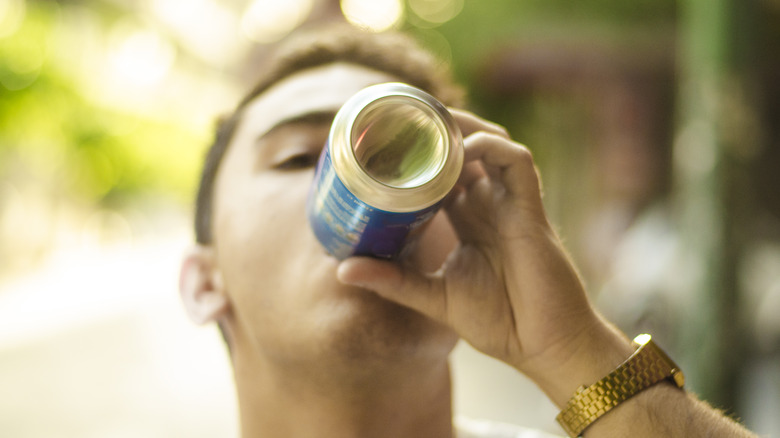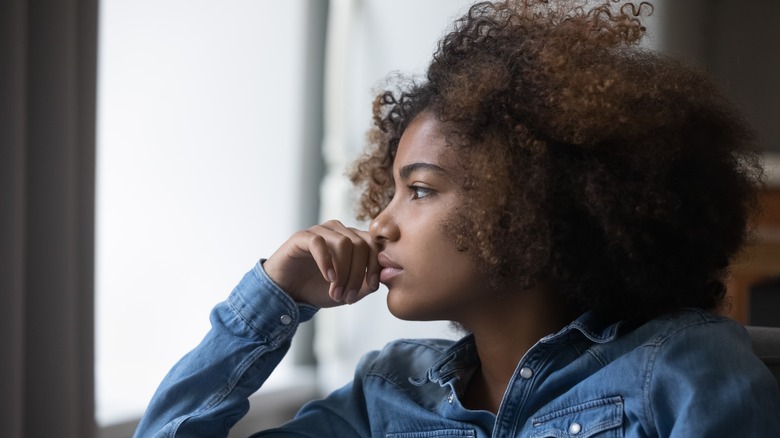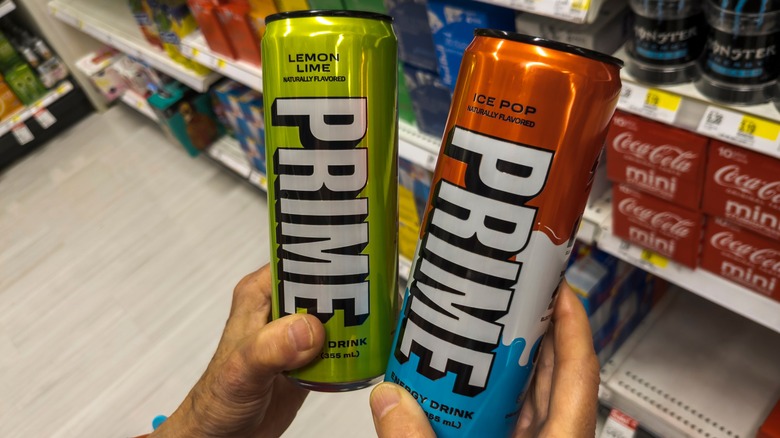Our Doctor Weighs In On Controversial Prime Energy Drink
Prime Energy, an energy drink developed by social media stars Logan Paul and Olajide Olayinka Williams Olatunji, aka "KSI," has come under fire across both the U.S. and Canada within the last week.
On July 9, Senator Chuck Schumer urged the U.S. Food and Drug Administration (FDA) to investigate the popular Prime product, which contains 200 milligrams of caffeine in a single 12-ounce can, according to The New York Times. To put that in perspective, Senator Schumer likened its caffeine content to approximately six cans of Coke. Furthermore, the beverage bypasses caffeine levels in similar products from other big-name energy drink brands, such as Red Bull, which contains 114 milligrams of caffeine in the same-sized can. Canada has also taken action, with the Canadian Food Inspection Agency (CFIA) recalling Prime Energy due to issues with its caffeine and labelling.
Using social media marketing, Prime Energy's bright colors and fruity flavors have drawn the interest of young people. It's clear that Prime Energy packs a punch when it comes to caffeine content and experts claim that it may pose potential health risks to consumers, especially children.
Negative effects on sleep
To shed some light on the possible health impacts associated with high levels of caffeine consumption, Dr. Michael Tehrani, MD, an internal medicine specialist specializing in geriatrics, spoke exclusively with Health Digest.
"Caffeine is a stimulant, meaning it stimulates all our organs to work faster and harder and too much of it can cause our body to go into overdrive and deteriorate faster," Dr. Tehrani said. "Caffeine consumption in excess can have a number of undesirable side effects. First off, it stimulates the central nervous system, making it difficult to fall asleep and stay asleep." He pointed out that this can put one at risk for various sleep conditions, such as insomnia.
Similar concerns were echoed by Dr. Edith Bracho-Sanchez, a pediatrician at NewYork-Presbyterian Hospital, who told The New York Times that drinking the amount of caffeine found in Prime Energy on a regular basis would be particularly detrimental to the sleep health of children.
Impacts on mental and physical health
"Consuming a lot of caffeine may raise blood pressure and heart rate, which may cause heart palpitations and hypertension," Dr. Tehrani told Health Digest. "Excessive caffeine consumption can also result in digestive issues such acid reflux, stomach irritability, and diarrhea."
Dr. Tehrani explained that there is also a potentially addictive component at play. "Additionally, as the body grows acclimated to the stimulating effects of caffeine, dependence and withdrawal symptoms, such as headaches, exhaustion, and irritability, can appear," he stated. This can be especially concerning for young kids and adolescents who often have a hard enough time during their teen years, a period that can be rife with social and emotional challenges. The regular consumption of excess caffeine may exacerbate these problems.
"Finally, excessive caffeine may have a bad effect on mental health, causing anxiety, jitters, and even increasing pre-existing anxiety problems," said Dr. Tehrani.
What is the recommended daily caffeine limit for kids and teens?
Concluding our exclusive interview, Dr. Tehrani compared excessive caffeine consumption to pushing a car beyond its limits. "Think of it as flooring your car constantly; that car's longevity will be significantly less than its counterparts," he stated. "While consuming too much caffeine isn't healthy, the average daily consumption someone is ok to drink is about 180-200 milligrams."
With 200 milligrams of caffeine in just one can, Prime Energy pushes the boundaries of this daily recommended limit for adults. Therefore, drinking two or more in a day would put a person well over the advised amount. The physician-recommended amount for children is about half of the adult limit. Pediatricians have said that kids between the ages of 12 and 18 should limit their caffeine consumption to a maximum of 100 milligrams a day (via The New York Times). Those younger than 12 should not be exposed to any caffeine.
Prime Energy is not recommended for those under 18
Senator Schumer summarized his concerns in his letter to the FDA, stating, "Many physicians have serious concern for Prime, and I write to specifically urge your agency to investigate Prime for its claims, marketing and caffeine content" (via The New York Times). If an investigation does occur, Prime would be the latest in a line of popular energy drink brands to face scrutiny, a list that includes Rockstar and Monster. Both companies were advised by government leaders to exercise caution in their own youth marketing strategies nearly ten years ago, reported CNN.
Paul has defended the brand on Twitter, saying that Prime Energy was never legally distributed in Canada. He claimed that any product sent to the country was done so illegally. The boxer also stressed the difference between Prime Energy and Prime Hydration, its alternate caffeine-free sports beverage with no age restrictions. He highlighted that Prime Energy is not recommended for those younger than 18.
Prime reinforced its dedication to consumer safety in a recent press statement, saying, "As a brand, our top priority is consumer safety, so we welcome discussions with the FDA or any other organization regarding suggested industry changes they feel are necessary in order to protect consumers."





